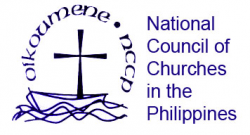Christian churches back giving of condoms in schools
MANILA — The National Council of Churches in the Philippines is backing the Department of Health’s plan to distribute condoms in schools with an age-appropriate sex education program.
In a statement, the religious group said the implementation of a comprehensive sex and sexuality education would ensure that the condoms would not promote promiscuity among students.
“We support the provision of condoms in schools within the framework of the effective implementation of a comprehensive and age appropriate sex and sexuality education,” it said.
The group added: “This would ensure that the presence of condoms does not ‘promote’ promiscuity but is an educational tool that evokes questions and encourages discussion that takes sexual behavior seriously and promotes health and honesty in sexual relationships.”
The NCCP was reacting to the DOH plan to distribute condoms in schools as part of its human immunodeficiency virus prevention drive.
This plan has been met with fierce opposition from the Catholic Church and other sectors, which warned that the move would promote promiscuity among students.
The NCCP noted that condom use had been proven to be effective in preventing HIV transmission between couples, in which one is HIV positive.
It also stressed the role of comprehensive and age appropriate sexuality education in countering misinformation accessible to the youth.
“There is more to be desired in addressing certain conditions in society that make our youth vulnerable to pressure and being exposed to HIV,” the NCCP said, citing poverty and other economic imbalances.
The religious group also pointed to the stigma attached to youths who grow up to be lesbian, gay, bisexual, transgender, and intersex “and where the lack of social and religious acceptance leaves them no room to be authentic.”
The NCCP affirmed that sexuality was a gift from God and there should be a “deliberate, careful and responsible celebration of that gift.”
“Abstinence, being drug free, fidelity and committed relationships are paramount. This should not exclude other evidence-informed prevention strategies such as the use of condoms,” it added. SFM/rga
